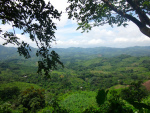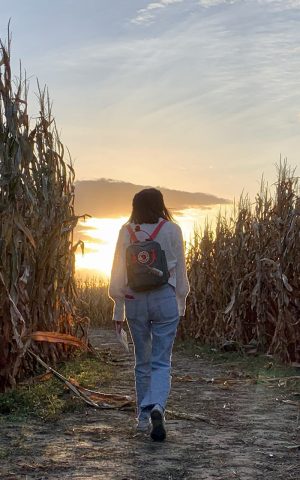Q&A with West Graduate Eric Balas about the Peace Corps
Eric Balas, stationed in Panama, talks about his experiences as a Peace Corps member.
February 19, 2016
Colette Balas: Why did you decide to join the Peace Corps?
Eric Balas: I have a history degree and am passionate about learning about other cultures. Peace Corps seemed like a great way to get an in-depth look into how other peoples in the world live while doing some valuable work.
CB: What did you think the Peace Corps entailed?
EB: I tried to do a lot of research about Peace Corps before and during the application process and quickly learned that every country is very different and Volunteers do a wide variety of jobs, so I knew I would have to wait until I got to country until I would really understand what my experience would be like. I did find out that I would be learning a new language, living in a community by myself, and living poor.
CB: What is the process like for joining Peace Corps?
EB: Peace Corps completely revamped the application process right after I applied so it is different now, but mine was long and exhaustive. It took me three weeks to fill out the application and I had interviews, background checks, medical appointments, and lots of waiting.
CB: How long does the process take?
EB: It is different for everyone, but it took me 14 months.
CB: When did you start to consider Peace Corps?
EB: My senior year of college.
CB: Do you get to choose where you go?
EB: You do now, but I did not. I told my interviewer that I would go anywhere and do any project they selected me for. However, the new application process gives you more options to choose your country and job.
CB: What is you favorite part about Peace Corps?
EB: I have an immense amount of freedom to choose my specific work and daily schedule.
CB: What makes Peace Corps unique to other outreach programs?
EB: Peace Corps is part of the U.S. government so we serve semi-diplomatic functions. We are supposed to share American culture with Panamanians and share Panamanian culture with Americans. By doing this interview, I am doing an important part of my job.
CB: What is your favorite part of Panama?
EB: Panama is exceptionally diverse. There are mountains, oceans, skyscrapers and city life, along with rural indigenous communities living deep in the jungle. There are endless opportunities to explore something new.
CB: What has been the most difficult part about living in Panama?
EB: The most difficult part has been the language barrier. I have been learning Spanish, buy my community members also speak an obscure language called Ngäbere. Even after over a year in Panama, communication is a day-to-day struggle.
CB: How has living in Panama influenced/changed your life?
EB: My community of indigenous people are extremely reserved and culturally different from me. This has forced me to become more social and outgoing so I am better able to find common ground with the people here.
CB: What are the people like and how do they interact differently?
EB: I live in a community of indigenous Panamanians called the Ngäbe. They are subsistence farmers and extremely poor. They spend most of their time in the fields working and at home the whole family spends time together in open-air kitchen areas cooking and chatting. They interact almost exclusively with extended family members and interaction between people of the opposite sex is very limited. Therefore, any time a woman Volunteer comes to visit me they automatically think that girl is my wife.
CB: What are some differences in the culture or people of Panama compared to America?
EB: Panamanians are much more laid back than most Americans. I can visit anyone’s house in my community uninvited and drink coffee with them all day. Also, punctuality does not exist here. There is something called la hora panameña here which essentially means nothing starts on time. My most recent community meeting was set to start at 8:00 AM, but actually started at 11:30 AM. This has been one of the hardest things for me to get used to.
CB: Why would you recommend Peace Corps?
EB: Peace Corps has been the most challenging yet rewarding thing I have ever done. I have pushed past my preconceived limits and live a constant adventure while doing work that helps disadvantaged people.



